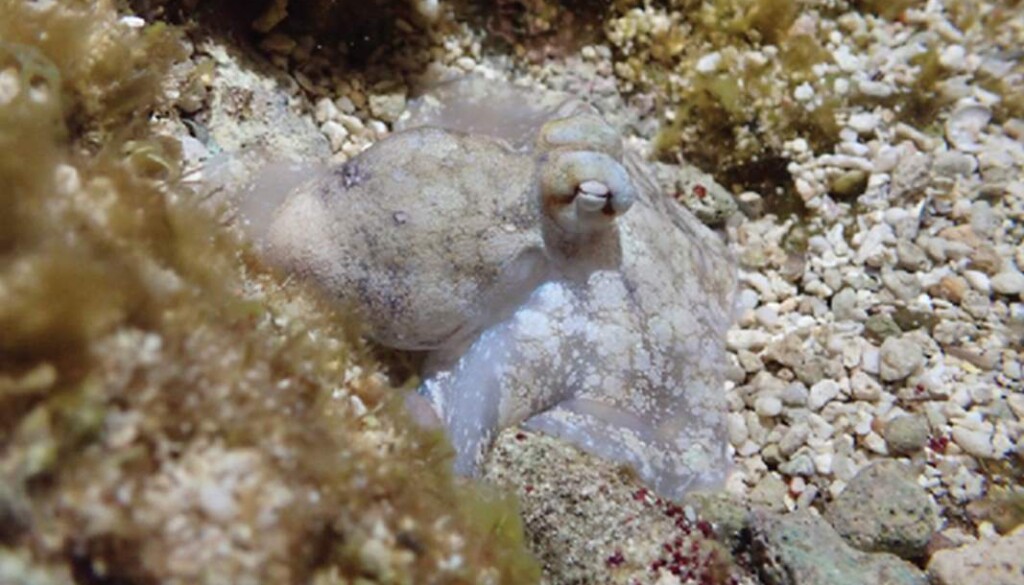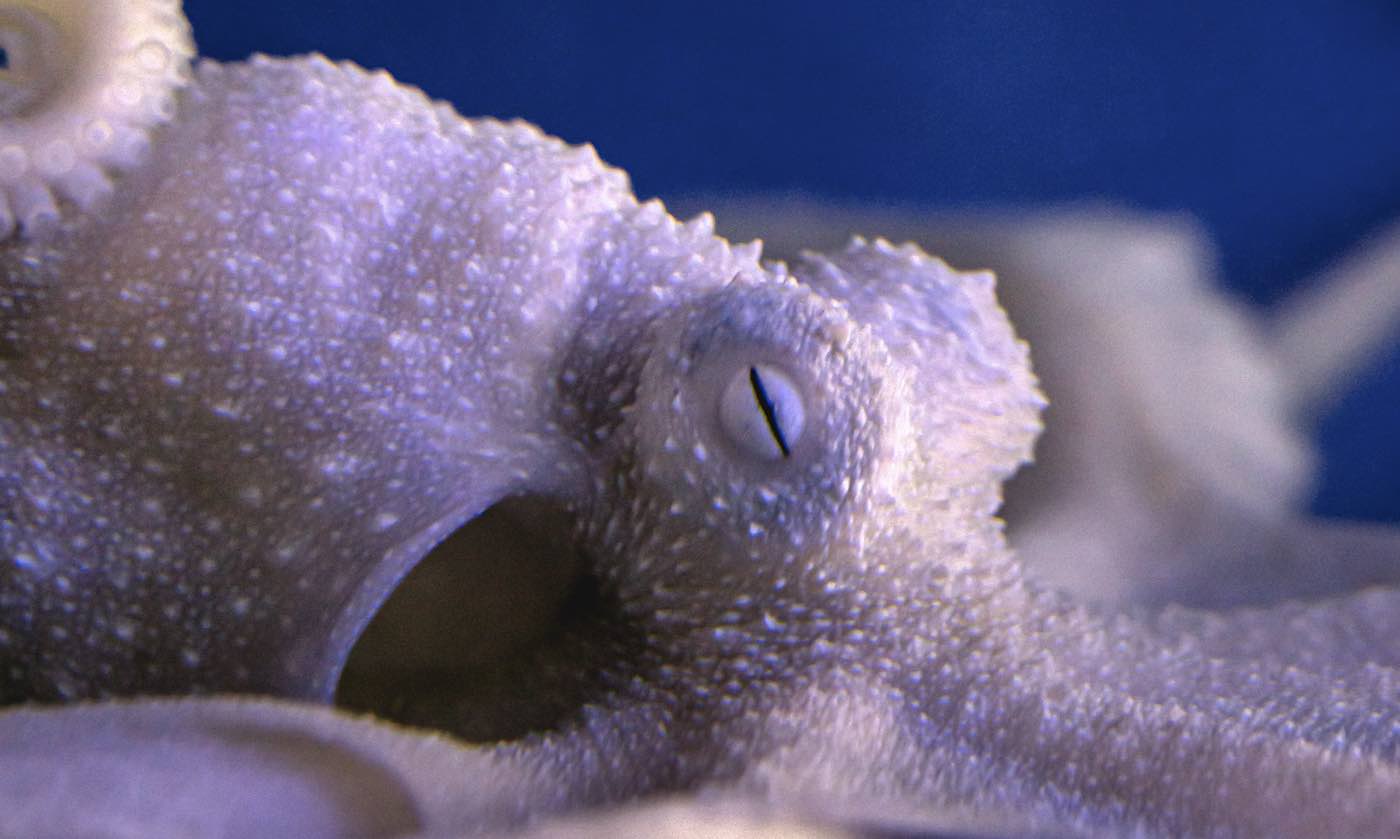
Researchers found that, like us, the octopus transitions between two sleep stages, a “quiet” stage and an “active” stage that resembles REM sleep in mammals.
Their arms and eyes twitch, their breathing rate quickens, and their skin flashes with vibrant colors—which has led scientists to conjecture that they may even be dreaming.
Researchers from the Okinawa Institute of Science and Technology (OIST) in Japan, along with colleagues from the University of Washington in the US, meticulously examined the brain activity and skin patterning in octopuses during that active period of sleep.
Roughly once an hour, the octopuses entered an active sleep phase for around a minute. During that stage, the octopuses’ brain activity very closely resembled their brain activity while awake, just like REM sleep does in humans.
The study also found that while sleeping, the octopuses cycled through the same skin patterns. The scientists theorized that the animals may have been practicing their skin patterns to improve their waking camouflage behavior, or simply maintaining the pigment cells.
Another idea is that the octopuses could be re-living and learning from their waking experiences, such as hunting or hiding from a predator, and reactivating the skin pattern associated with each experience.
The research team said their findings, published in the journal Nature, highlight the remarkable similarities between the sleeping behavior of octopuses and humans.
“All animals seem to show some form of sleep, even simple animals like jellyfish and fruit flies,” said senior author Professor Sam Reiter, head of the Computational Neuroethology Unit at OIST. “But for a long time, only vertebrates were known to cycle between two different sleep stages.”
REMARKABLE MARINE LIFE: Kayaker Singing in Hopes of Attracting Beluga Whales Never Imagined They Were Actually Listening
“The fact that two-stage sleep has independently evolved in distantly related creatures, like octopuses, which have large but completely different brain structures from vertebrates, suggests that possessing an active, wake-like stage may be a general feature of complex cognition,” added co-author Dr, Leenoy Meshulam.
What does this mean to science? In extrapolation, it means that sleeping, and indeed dreaming, was selected for in both humans and octopuses independent of the fact that the evolutionary paths which produced these animals diverged 500 million years ago.
While sleeping, animals in nature are extremely vulnerable. They’re unable to hunt or forage for food, unable to defend themselves against predators, unable to search for a mate, and unable to protect their offspring.
MORE EVOLUTIONARY SCIENCE: Scientists Discover Butterflies Originated in America 100 Million Years Ago When Upstart Moths Wanted to Bask in the Sun
Indeed, sleep overrides all other prime activities of life, the activities most people would suggest to be the most basic and important among multi-celled organisms.
One might conclude then that sleep, and potentially dreaming, is one of the most fundamental needs for life.
SHARE This Fascinating Study With Your Friends…




















